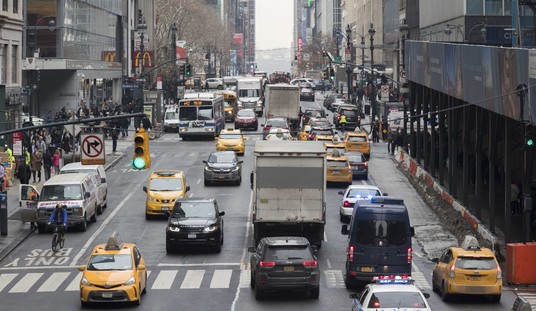As economic desperation prompted by hyperinflation continues to run rampant in Venezuela, many citizens are no longer able to cover the costs of a traditional funeral. Some have turned to renting caskets which are reused over and over. From Fox News:
“What is happening is medieval. People are ‘renting’ caskets for a service, but giving them back. The same casket is being used over and over again because people cannot afford to buy one,” Venezuelan opposition leader Julio Borges, who has been living in exile in the Colombian capital of Bogota for the past nine months, told Fox News. “And then they have to wrap the body in plastic bags for the burial. Others don’t have money for a land plot, so they are burying loved ones in their back garden.”…
“In poorer areas, plywood coffins are sometimes being used,” explained Guillermo Aveledo, a 40-year-old political science professor at the University of Caracas. “Former middle classes can rent a proper coffin for the wake, but prefer cremation, which is cheaper.”
But even the process of cremation has become problematic. Locals described to Fox News the acute lack of natural gas needed to properly incinerate the bodies, despite the fact Venezuela has some of the largest energy reserves in the world…
In some extreme cases, impoverished Venezuelans are dragging their dead for days in the sweltering sun to reach the Colombian border, where locals are assisting them with some kind of burial.
The cost of burial is too much for many Venezuelans who have resorted to burying their deceased relatives in their own backyards. As a piece in the Economist noted yesterday, it seems the failing state just keeps failing:
Venezuela’s economy has shrunk by half since 2014—a feat few others have achieved in peacetime. Hyperinflation began in October 2017: over the 12 months to November, prices have risen by 1,299,744%, says the finance committee of the opposition-controlled National Assembly. (The government no longer publishes figures.)
What remains of Venezuela’s private sector is facing destruction, says a boss. The government has loosened some of the ruinous price and exchange controls it long relied on. Now the main problem for business is the plunge in demand as wages are shredded by inflation. Companies are closing down. The latest to do so this week was Goodyear’s Venezuelan tyre factory, which was operating at 10% of capacity.
Venezuela’s collapse is not the result of low oil prices, still less of sanctions imposed by the United States. Other oil producers have coped with low prices, and the sanctions mainly affect individual leaders of the regime. Venezuela has been mismanaged and looted by its rulers. Chávez squandered an oil boom, borrowed recklessly and shackled the private sector. Venezuela is now the world’s most indebted country. Its foreign obligations equal five times its exports, according to Ricardo Hausmann, a Venezuelan economist at Harvard University. Even China and Russia seem reluctant to lend more to it.
Things are so bad that the country’s proud socialist dictator, Nicolas Maduro, has finally accepted outside help. From the Washington Post:
For years, the South American nation’s leftist government has blamed its dramatic social struggles on a foreign “economic war.” Since the days of the late president Hugo Chávez, who led a “Bolivarian Revolution” and died in 2013, the government has openly refused financial aid, calling offers of outside help thinly disguised efforts by “imperialist” powers to intervene.
But within the past two weeks, the United Nations announced that it would funnel $9.2 million to Venezuela from its Central Emergency Response Fund for the first time — a sum the Venezuelan government had agreed would go to U.N. agencies here. Maduro also invited former Chilean president Michelle Bachelet, head of the U.N.’s Office of the High Commissioner for Human Rights, to visit the country. The invitation came after refusing entry to the previous commissioner this year. The country’s secretive central bank, which had refused to share financial information for the past two years, is also reportedly preparing new data for the International Monetary Fund.
“The government likely changed its opinion on how to deal with a worsening crisis and more international sanctions out of necessity,” said Luis Vicente León, political analyst and director of the Datanálisis polling agency. “The cost of risking their image is becoming lower than the cost of dealing with the crisis by themselves.”
So perhaps there’s some very belated realization that the ship is sinking but it comes far too late to help the millions who have already fled the country and the unknown number who have died in the crisis.








Join the conversation as a VIP Member